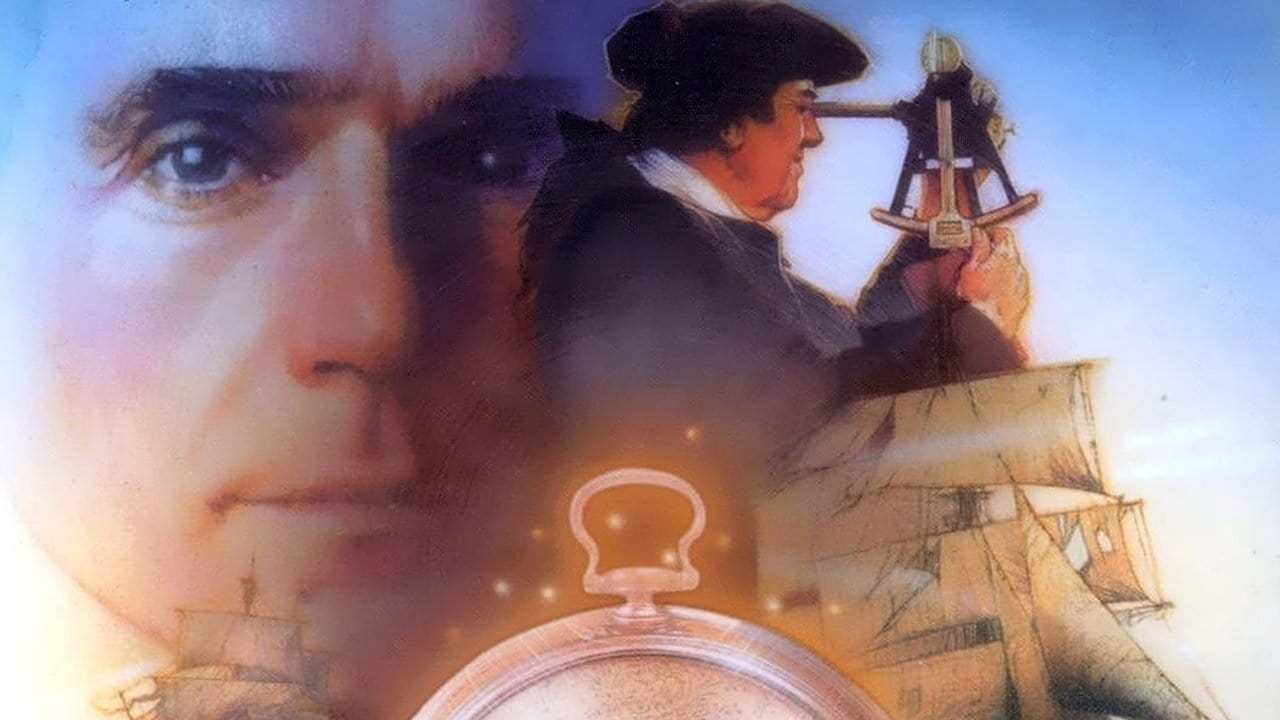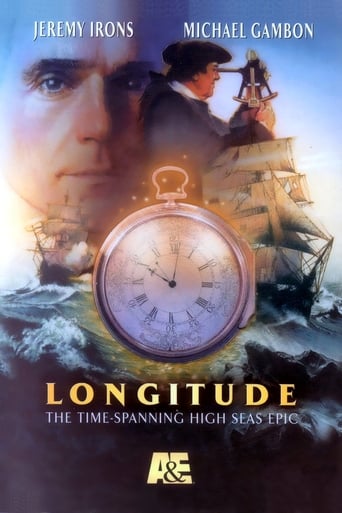



You won't be disappointed!
not as good as all the hype
Nice effects though.
This is a small, humorous movie in some ways, but it has a huge heart. What a nice experience.
View MoreIn 1920 Rupert Gould gained permission to restore John Harrison's chronometers. A self-educated English carpenter and clock maker who helped solve the longitude sea voyages safely and accurately. Something which is almost taken for granted now, nearly 300 years later. East and West points were necessary before the time of his designed watch, (which is why the Longitude prize was offered) as there were many errors calculating the previous to the current position, sometimes causing shipwrecks, with many lives lost, especially on longer voyages. This is two stories in one and flicks back and forth over the course of the storytelling. Captain James Cook navigated the South Pacific using a copy of Harrison's' 4th chronometer, praised it and made charts so accurate that copies of them were still in use in the mid-20th century.
View MoreLongitude is an example of the very best in television drama. Based on a true story, meticulously acted and directed, this is the type of movie that the British do better than anyone else in the world.The performances of the two principals, Michael Gambon and Jeremy Irons were awe inspiring, the excellent supporting cast did not let them down.What on the surface sounds like a dry story - the search for a means of accurately determining longitude at sea - and the obsession many years later of a returned WW1 soldier with locating and restoring the devices invented for that purpose - was turned into a genuine cliffhanger by the producers. Initially I found the switching from one story to another somewhat disconcerting, but it was done so well that it soon felt quite comfortable.This is the story of one man's lifelong trial and error search to perfect his devices and to win the prize offered for the solution to the longitude problem. Against all odds and at great damage to his health he and his son eventually succeeded. Interspersed with this is the story of another man centuries later who was determined to locate & restore the devices and to ensure their preservation for future generations.I can really recommend this show to anyone with an enquiring mind, who enjoys a fascinating story, excellently told.
View MoreI thought this film was over-long, in particular the Gould/Irons story was boring and irrelevant, and the piece would have benefited by cutting this bit out altogether.Being a firm believer that truth is stranger and more interesting than fiction I was also disappointed by the sensationalising of events. This sort of dumbing-down of history is a real insult to viewers. The plot took the easy option at every point - the "Board" are villains from start to finish, Harrison not only proves his clock works but saves the bacon of the of ship or fleet at every turn, the proponents of the rival astronomical systems are all bungling fools. All nice cosy escapism I suppose. However, the acting was fine and the production values superb.
View MoreLong, but worth it! A blessed antidote to MTV's Tom Green and the rest of the scumbag-chic that passes for culture these days. Based on the brilliant history of the same name by Dava Sobel.In the days when ships measured themselves by yardage of sail and bank of cannon, knowing your north-south latitude was easy. Finding your east-west longitude however (and keeping your ship off the reefs) was hit-and-miss. That could get you killed. The cure was to know the time in London, precisely, but keeping time accurate on a rolling ship was tougher than keeping milk fresh; pendulum clocks need stable ground, and pendulum clocks were all they had.Queen Anne (Br., 1665-1714) had another idea: a 20,000 pound-sterling prize to anyone who had a solution. Problem was, no one expected a country carpenter cum-clockmaker to do it. John Harrison (Michael Gambon) was that carpenter, and it became *his* problem--a three-decades-long problem. It would also pose one for Rupert Gould (Jeremy Irons) two centuries later, as a marriage-busting, sanity-breaking obsession over restoring Harrison's neglected prototypes: clocks that could keep time at sea better than the quartz-timed digital you might be wearing now."Longitude" weaves seamlessly--almost--between the two eras, tracking the exertions and miseries of John Harrison and Rupert Gould with the same kind of synchronicity Harrison spent half his life pitching to astronomers who had scarce respect for the tinkerings of a hayseed. Michael Gambon's passionate performance as John Harrison is truly Oscar-calibre, eclipsing Irons--but only because the tunnel-visioned Rupert Gould is hardly a vehicle for the memorable. Too bad this was "only" a TV mini-series. As a theatrical release it would have lent due reknown to a scarce-remembered true epic of genius.Watch this when you get the chance. Then go punch Tom Green in the nose.
View More